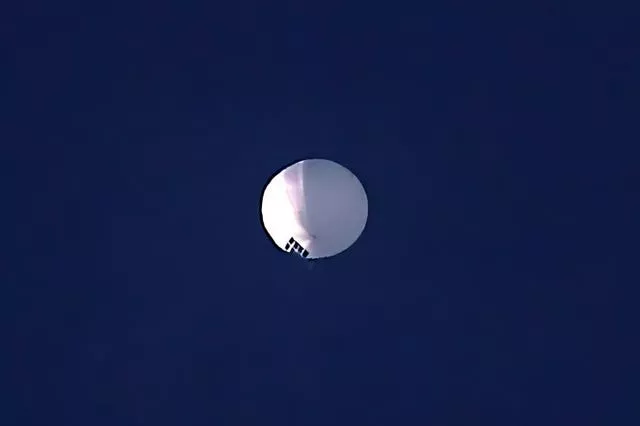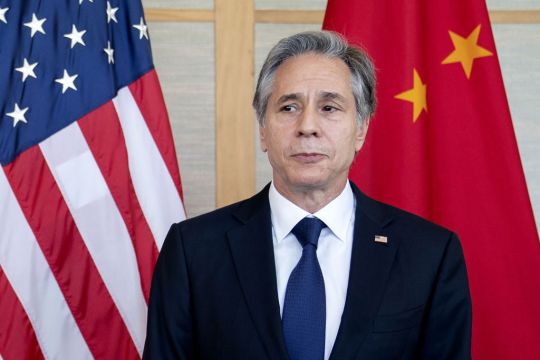US Secretary of State Antony Blinken has postponed a planned high-stakes weekend diplomatic trip to China as the Biden administration weighs a broader response to the discovery of a high-altitude Chinese balloon flying over sensitive sites in the western United States, US officials said.
The abrupt decision came despite China’s claim that the balloon was a weather research satellite that had blown off course.
The US has described it as a surveillance satellite.
The decision came just hours before Mr Blinken had been due to depart Washington for Beijing and marked a new blow to already strained US-Chinese relations.

US president Joe Biden declined to comment when questioned at an economic event.
Two 2024 re-election challengers, former president Donald Trump, and Nikki Haley, the former South Carolina governor and UN ambassador, said the US should immediately shoot down the balloon.
Discovery of the balloon was announced by Pentagon officials who said one of the places it was spotted was over the state of Montana, which is home to one of America’s three nuclear missile silo fields at Malmstrom Air Force Base.
A senior defence official said the US prepared fighter jets, including F-22s, to shoot down the balloon if ordered.
The Pentagon ultimately recommended against it, noting that even as the balloon was over a sparsely populated area of Montana, its size would create a debris field large enough that it could have put people at risk.
Brig Gen Pat Ryder, Pentagon press secretary, refused to say on Friday whether there was any new consideration of shooting the balloon down.
Brig Gen Ryder said it was at an altitude of about 60,000 feet, was manoeuvrable and had changed course. He said it currently was posing no threat.
The balloon had moved eastward over the heartland of the central United States by midday local time and was expected to remain in US airspace for several days, officials said.
Mr Blinken had been prepared as late as Thursday to travel to Beijing this weekend but the administration had begun to reconsider the trip following the discovery of the balloon on Wednesday, even before its presence was made public, an official said.
The official, who spoke to reporters on condition of anonymity due to the sensitivity of the matter, said the administration had “noted” China’s expression of regret.
The senior defence official did not address whether the US accepted that it may have been a weather balloon instead of a surveillance one, as US officials had previously described it.
But, he said, the seriousness of the violation of US airspace, sovereignty and international law was such that Mr Blinken’s trip could not go forward as planned.
The official called the presence of the balloon “unacceptable” and said that message had been delivered by Mr Blinken to Chinese State Councillor Wang Yi on Friday.
However, the official also said that Mr Blinken had told the Chinese he would be prepared to travel to China “at the earliest opportunity when conditions allow”.
Mr Blinken’s long-anticipated meetings with senior Chinese officials had been seen in both countries as a way to find some areas of common ground at a time of major disagreements over Taiwan, human rights, China’s claims in the South China Sea, North Korea, Russia’s war in Ukraine, trade policy and climate change.
Although the trip, which was agreed to in November by Mr Biden and Chinese President Xi Jinping at a summit in Indonesia, had not been formally announced, officials in both Beijing and Washington had been talking in recent days about Mr Blinken’s imminent arrival.
The meetings were to begin on Sunday and go through to Monday.
In a relatively conciliatory statement, the Chinese foreign ministry said late on Friday that the balloon was a civilian airship used mainly for meteorological research.
The ministry said the airship has limited “self-steering” capabilities and “deviated far from its planned course” because of winds.
“The Chinese side regrets the unintended entry of the airship into US airspace due to force majeure,” the statement said, citing a legal term used to refer to events beyond one’s control.







